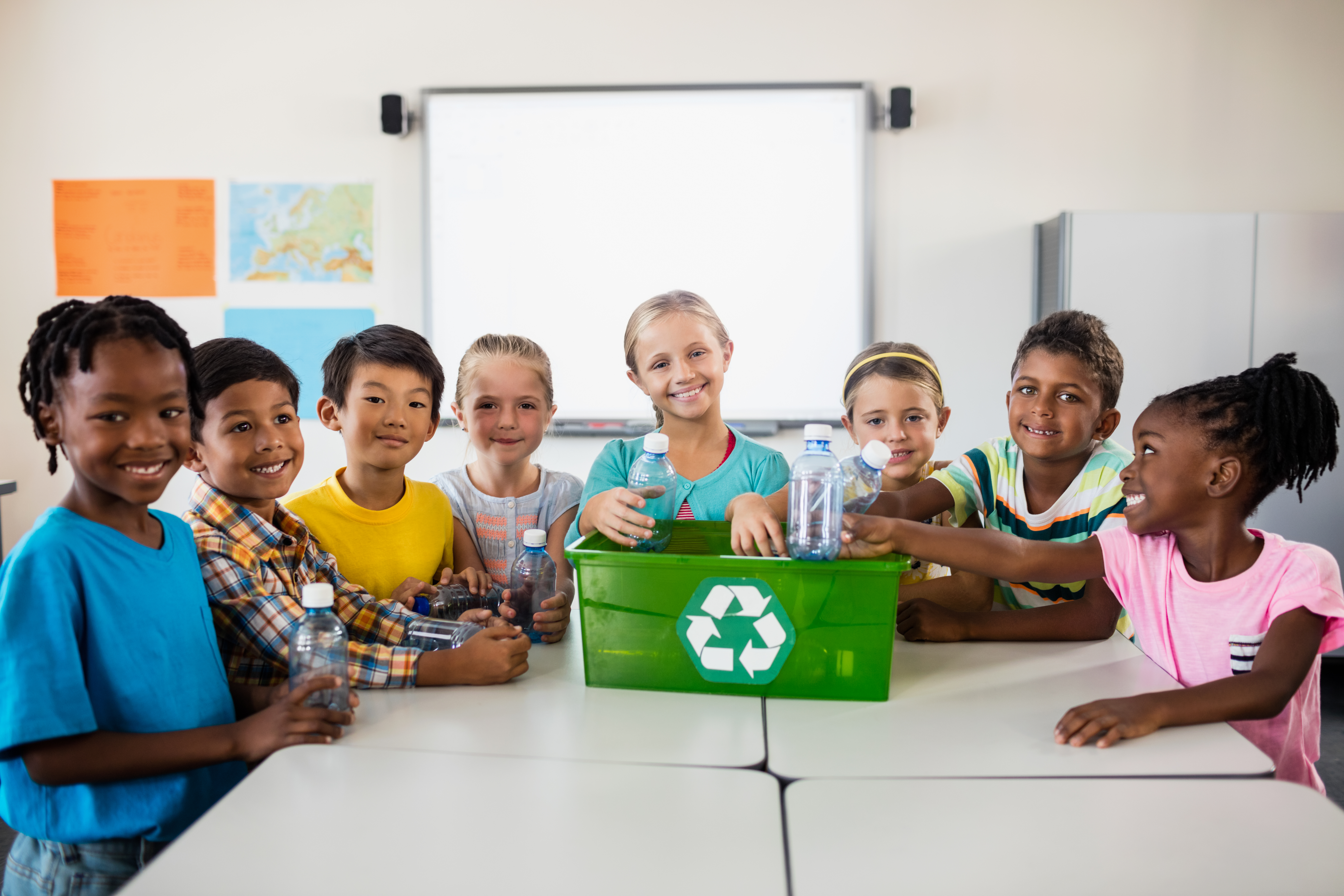2024 ALPLA Sustainability in Education Survey
Published: October 2, 2024 Updated: October 1, 2024
Most Americans Believe Sustainability Education is Essential, but so is Proper Funding.
Recent survey finds 72% believe sustainability education should be a core part of school curriculum, but only 28% say it’s adequately funded.

Purpose: Environmental issues have been divisive for decades now. Those divisions are nearly always along political lines around topics like governmental regulations and the reality of climate change. It would be fair to assume, then, that the topic of sustainability education in schools would be just as divisive. But is it? We often see that once you remove politics from an issue, you lose the division too. We wondered if that might be the case with sustainability education in schools, so we used the third-party platform Pollfish to survey 1,000 Americans over 18 years old with children to get their thoughts. What we found was broad support for sustainability being a part of school curriculums.
Maybe even more surprisingly, the 2024 ALPLA Sustainability in Education Survey revealed not just broad support for sustainability education but the same number of people said these types of programs needed more funding.
Key Findings:
- 72% of Americans believe sustainability education should be a core part of the school curriculum.
- 79% support integrating sustainability concepts across all subjects.
- 68% advocate for sustainability instruction to be taught at least weekly, with nearly 30% pushing for daily instruction.
- Only 28% feel sustainability education is adequately funded in their schools.
- 80% consider sustainability education critical to the planet's future.
- 73% would support increased funding for sustainability programs in schools.
"Sustainability education is essential for empowering the next generation to tackle social and environmental challenges,” says Billy Rice, Sustainability Manager at ALPLA, North America.
This is an idea ALPLA so supports that it partnered with an Atlanta-area elementary school to bring sustainability education to life for young students.
Teachers aligned with ALPLA to integrate recycling topics into everyday curriculum for a design thinking class. Students were encouraged to look at the objects in their lives they interacted with every day—considering those objects' lifetimes, their longevity, and how they could be more responsible with their use.
The class ended with students creating illustrations for a book they could share with others to help educate them about sustainable practices.
“Seeing broad support for integrating sustainability education across school curriculums is encouraging,” Rice said. “To truly prepare students for the future, we must ensure sustainability is taught regularly and woven into various subjects. This isn’t just about knowledge—it’s about equipping young minds to build a sustainable future for all of us.”
Sustainability as a Core Subject in School
Who'd have thought that sustainability education would be seen as essential as reading, writing, and mathematics? But apparently, that's where we are. Our survey reveals that an overwhelming 72% of Americans believe sustainability education should be a core part of the school curriculum.

More than two-thirds (68%) of respondents believe sustainability should be taught at least weekly, with nearly 30% advocating for daily lessons.

Those sustainability lessons shouldn’t be relegated to a sustainability class: 79% support integrating sustainability concepts across all subjects. This reflects a growing understanding that sustainability isn’t just an environmental issue—it’s interconnected with our economy, society, and daily lives.

Broad Approach to Sustainability Education
The survey also reveals a strong preference for a broad approach to sustainability education. A significant 60% of respondents believe instruction should cover a wide range of topics, from recycling to energy and water conservation.

Funding and Training: The Big Hurdles for Sustainability Education
Despite overwhelming support for sustainability education, significant barriers remain: inadequate funding and insufficient teacher training. Only 28% of respondents believe sustainability education is adequately funded, and a mere 29% think teachers have the necessary training to deliver effective instruction.


A substantial 73% of Americans support increased funding for sustainability programs in schools. This willingness to invest suggests a clear path forward to overcoming both the funding shortfall and the training gap.

Long-Term Impact and Importance of Sustainability Education
Despite these challenges, Americans remain optimistic about the impact of sustainability education.
Our survey shows that 77% of respondents believe students become more environmentally conscious after receiving this education, and 63% think it has a lasting impact on students' lives. These findings underscore the far-reaching benefits of sustainability education, extending well beyond the classroom.


Most compellingly, 80% of respondents see sustainability education as critical to the planet's future. This overwhelming majority underscores the perceived value of sustainability education as a long-term investment in our world's health and survival.

As environmental challenges grow in complexity and urgency, equipping our youth with the knowledge and skills to address these issues becomes increasingly critical. Our 2024 ALPLA Sustainability in Education Survey shows that most Americans recognize that. They support broad, regular sustainability education in the classroom, and they support the increased funding needed to make that a reality.
In some areas, the gap between public support and current reality is wide, but we see that as an opportunity.
"The survey results should be a call to action.,” Billy Rice says. “We have the public support; now we need to translate that into tangible changes in our schools. The future of our planet depends on how we educate the next generation about sustainability."
